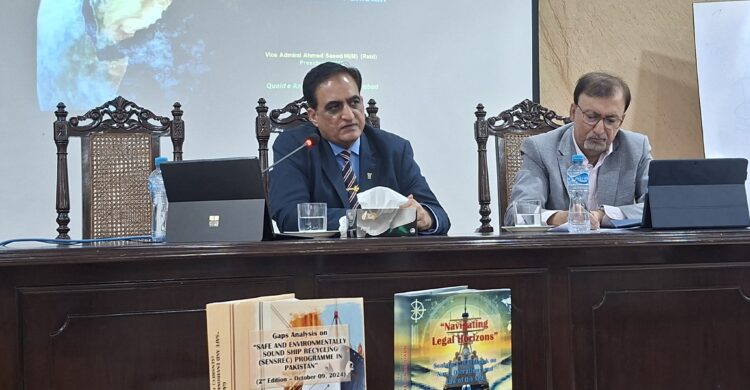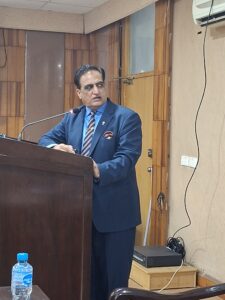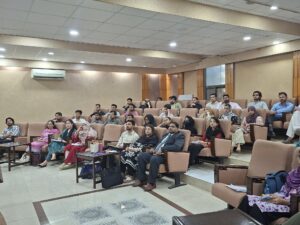
 The DSS Department’s Students Society organized an insightful Lecture on Global Maritime Security — Prospects and Challenges for Pakistan on 21 October 2025, by the distinguished guest speaker, Vice Admiral Ahmed Saeed HI(M) (Retd.), President of the National Institute of Maritime Affairs (NIMA), Islamabad. The session was attended by faculty members, scholars, and students from the DSS department, who gathered to understand Pakistan’s evolving maritime landscape within the global context. Admiral Saeed offered an in-depth exploration of how maritime security, international politics, and economic growth are interconnected in the modern era.
The DSS Department’s Students Society organized an insightful Lecture on Global Maritime Security — Prospects and Challenges for Pakistan on 21 October 2025, by the distinguished guest speaker, Vice Admiral Ahmed Saeed HI(M) (Retd.), President of the National Institute of Maritime Affairs (NIMA), Islamabad. The session was attended by faculty members, scholars, and students from the DSS department, who gathered to understand Pakistan’s evolving maritime landscape within the global context. Admiral Saeed offered an in-depth exploration of how maritime security, international politics, and economic growth are interconnected in the modern era.
 crucial element of national power, economic development, and international relevance. He warned that hybrid warfare tactics—including cyberattacks, illegal fishing, and trade disruptions—are becoming common threats to global supply chains. The absence of a unified UN body exclusively dedicated to maritime security, despite frameworks like UNCLOS (1982), leaves significant governance gaps. The Admiral stressed that regional partnerships, confidence-building measures, and international collaboration are crucial to ensuring safe and sustainable maritime activity.
crucial element of national power, economic development, and international relevance. He warned that hybrid warfare tactics—including cyberattacks, illegal fishing, and trade disruptions—are becoming common threats to global supply chains. The absence of a unified UN body exclusively dedicated to maritime security, despite frameworks like UNCLOS (1982), leaves significant governance gaps. The Admiral stressed that regional partnerships, confidence-building measures, and international collaboration are crucial to ensuring safe and sustainable maritime activity.
Leave a Comment